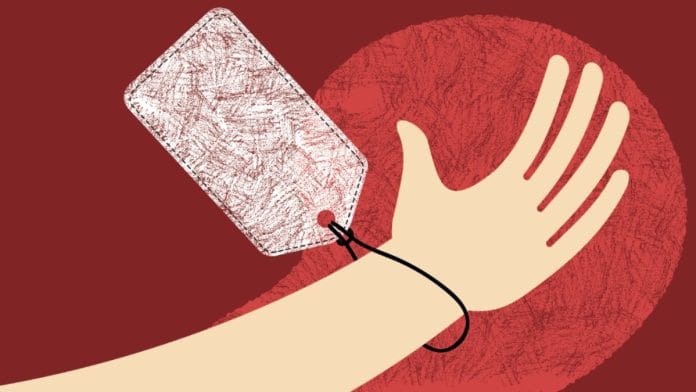During my time working for the United Nations, I had the opportunity to interview a young victim of sex trafficking in Pattaya, Thailand. This particular interview, which coincided with Valentine’s Day, left an indelible mark on my memory. As I listened to her harrowing story, I couldn’t help but notice the tears in her eyes and the enduring sadness etched on her face.
As our conversation, which took place in a coffee shop, drew to a close, she told me how she dreaded Valentine’s Day. She recounted how clients would arrive intoxicated, making crude jokes about the day’s significance and expecting her to fulfil their twisted notions of something ‘special.’
Moved by her words, I responded with genuine empathy, saying, ‘That must have been incredibly difficult for you.’
Pausing to gather her thoughts, she replied, ‘Yes, but not for the reasons you might expect.’
With a mix of sorrow and resignation, she explained that unlike her friends back in her village, she had never experienced the simple joys of Valentine’s Day. She lamented how everything that most people took for granted—the first Valentine’s card, the first date, the first rose, the first time holding hands, the first kiss, the first dance, and even the first boyfriend—had all been stolen from her.
This exchange left me with a deep sense of helplessness. I yearned to do something meaningful for her on that day, but I struggled to find a way. What could I possibly do?
Victims of trafficking are denied the pleasure of receiving cards, indulging in chocolates, enjoying romantic dinners, and cherishing tender moments. Their lives and their right to experience things the rest of us take for granted the beauty of tradition, celebration, and joyful occasions— have been cruelly stolen from them.
This young woman’s story highlighted just one aspect of the many injustices inflicted upon the victims of human trafficking. It was a stark reminder of the depth of their suffering and the urgency of our battle.
Also read: Medieval Indian rulers prided themselves on trafficking women. Even queens weren’t safe
Please Listen to Me, I Have Something to Say
Each and every one of the resilient women and girls I met had their own hopes and dreams. Here are some of them:
Sushma aspired to become a teacher. When I spoke with her in Nepal, she radiated excitement while recounting her favourite teacher’s influence, who inspired her to create art and write.
Pari longed to have a family of her own. She fondly described her family’s farm, which overlooked the breathtaking Annapurna Mountain range in Nepal. To her, home was one of the most beautiful places on earth. Having visited it many times, I had to agree.
Despite being banished by her family following her trafficking ordeal, Prachi yearned for the impossible—to reunite her entire family once more. Though doubtful, her dream persisted.
For Sanjita, a simple desire burned within her—to be loved by someone, just one person.
Maya expressed her wish for her story to be shared to aid others. When I informed her about another trafficking survivor who traversed the Nepalese hills to spread awareness, she became excited, proclaiming, ‘That’s exactly what I’ll do for the rest of my life.’
Zara’s dream was to receive her mother’s forgiveness for what she had endured. Even when reassured that it wasn’t her fault, she replied with a heavy burden of self-blame, ‘There must have been something in my past that brought this upon me. It was my fault.’
Nima yearned to find a man who would accept her pest unconditionally and love her despite her background.
Rekha simply wished for the tormenting fear she experienced to dissipate. Each touch from another person sent crippling shockwaves through her entire body.
Mina spoke of her craving for the flavours of village food. She vividly described her mother’s unparalleled culinary skills.
Each of these stories remains emblazoned in my memory, their faces eternally imprinted in my mind. Each one of them deserves to be heard.
However, mere acknowledgment is not enough. If we listen to their harrowing tales without taking action to prevent such atrocities, we become complicit in the problem.
Behind every sex trafficking victim lies a childhood, a family, a home, and a personal history. They, too, know love. They harbour dreams. They yearn for affection. Their hopes are the same as our hopes.
 This excerpt from Awakening the Advocate: Memoirs of a Modern Slavery Activist by Matthew S Friedman has been published with permission from Penguin Random House.
This excerpt from Awakening the Advocate: Memoirs of a Modern Slavery Activist by Matthew S Friedman has been published with permission from Penguin Random House.






